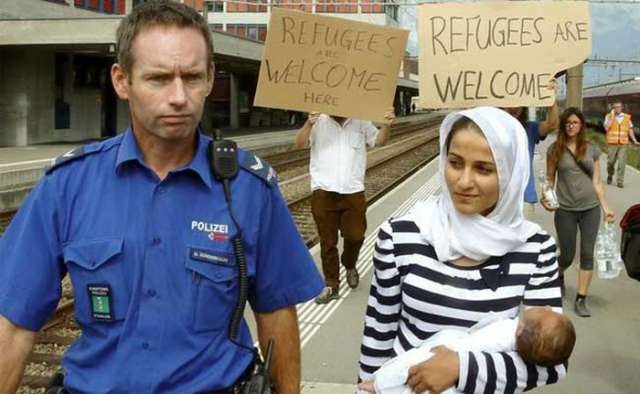Even in peaceful, consensus-minded Switzerland, however, the issue of asylum seekers is proving politically sensitive and the country`s biggest party, the right-wing Swiss People`s Party (SVP), remains strongly opposed to any measures that might encourage more refugees, most of whom are Muslim, to come.
The refugee challenge for Switzerland remains much more manageable than for, say, Germany.
Far fewer people fleeing conflicts in Syria and elsewhere are currently seeking asylum in the small Alpine nation, which is not a member of the European Union though it is part of Europe`s free travel `Schengen` area.
Under the Swiss system, five refugee centres swiftly sift through asylum applicants and send those most likely to qualify to cantons under a fixed quota while their cases are heard.
In a move to further streamline the process, the Swiss parliament has also recently approved plans to shorten the asylum process for most applicants to less than 140 days while providing them with free legal representation.
"We can show that these accelerated asylum procedures not only work but, thanks to comprehensive legal protection, are actually fair too," Swiss President Simonetta Sommaruga said.
The European Commission is trying to persuade the 28-nation EU to also accept a quota system that would evenly share out the responsibility of accommodating asylum seekers, but faces stiff resistance, especially from ex-communist member states. EU interior ministers will again try to break the deadlock on Tuesday.
Switzerland committed on Friday to take in 1,500 asylum seekers under the EU quota system if it is approved.
Germany, which expects to admit 800,000 refugees this year, gave a nod to the Swiss model last week when Chancellor Merkel`s federal government agreed with German regional administrations on distributing refugees across the country and creating a network of centres to facilitate the task.
More about:















































